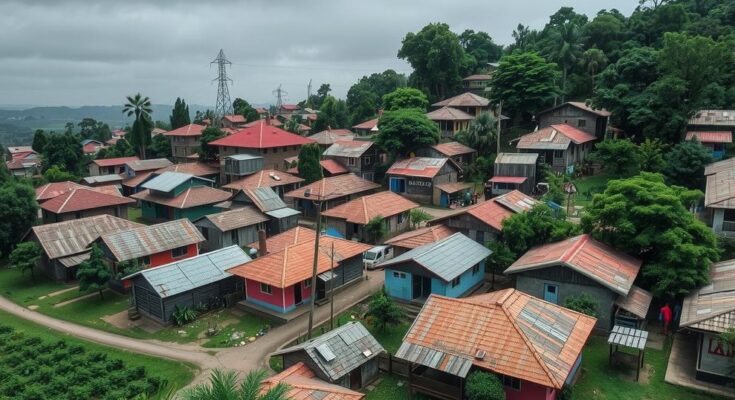Rebels from the M23 group have seized the towns of Katale and Masisi in eastern Congo, worsening an ongoing humanitarian crisis that has displaced over 7 million people. The situation has drawn criticism of the Congolese government’s inaction and allegations of Rwandan military support for the rebels as hostilities resume despite a recent ceasefire agreement.
Rebels from the M23 group have recently taken control of two significant towns in eastern Congo, intensifying the ongoing security and humanitarian crises in the region. Katale and Masisi, located near the strategic city of Goma, have fallen under rebel control within the past week, as reported by civil society representatives and local officials. The M23, part of a broader conflict involving over 100 armed factions in this mineral-rich area, has contributed to the displacement of more than 7 million individuals across the country.
Lawrence Kanyuka, the political spokesperson for the M23, announced their control over Masisi via social media, highlighting their commitment to civilian protection. However, Alexis Bahunga, the deputy representative for Masisi, described the humanitarian conditions in the area as catastrophic, with civilians dispersed and seeking shelter in camps. Col. Djike Kaiko, spokesman for the Congolese army, indicated he was verifying these developments. John Banyene, president of the civil society organization Forces Vives du Nord-Kivu, criticized the government’s inaction regarding the advancing rebels, asserting that such a posture was unacceptable amidst the crisis. Local resident Bernard Kanyama shared his concerns over the dangerous situations faced by his fellow villagers as they attempt to escape the violence, noting casualties resulting from rebel attacks.
The Democratic Republic of the Congo accuses Rwanda of supporting the M23, a claim that Rwanda has denied. Nonetheless, evidence suggests that Rwanda maintains military forces within Congolese territory, purportedly to protect its national interests amid regional tensions. Despite a ceasefire agreement signed in July and enacted in August, hostilities have resumed, prompting the United States to express its grave concern about the violations committed by the M23.
The situation in eastern Congo is characterized by ongoing conflict involving numerous armed groups, particularly the M23, which has been at the center of recent escalations. With the region’s wealth of minerals making it a focal point for conflict, humanitarian issues have proliferated, leading to mass displacement and suffering for the local population. The historic tensions between Congo and Rwanda contribute further to the complexity of the conflict, with accusations and counter-accusations about military support exacerbating the situation. The recent capture of key towns like Masisi reflects the deteriorating security landscape and poses significant challenges for the Congolese government and international peace efforts.
The recent capture of Masisi and Katale by M23 rebels highlights the expanding crisis in eastern Congo, marked by deepening humanitarian conditions and significant civilian upheaval. The failure of the Congolese government to effectively respond to the rebel advances has drawn criticism and raises concerns about the broader implications for stability in the region. Furthermore, the involvement of neighboring Rwanda complicates the conflict landscape, emphasizing the necessity for immediate international attention and intervention to address the urgent humanitarian needs and restore peace.
Original Source: apnews.com




